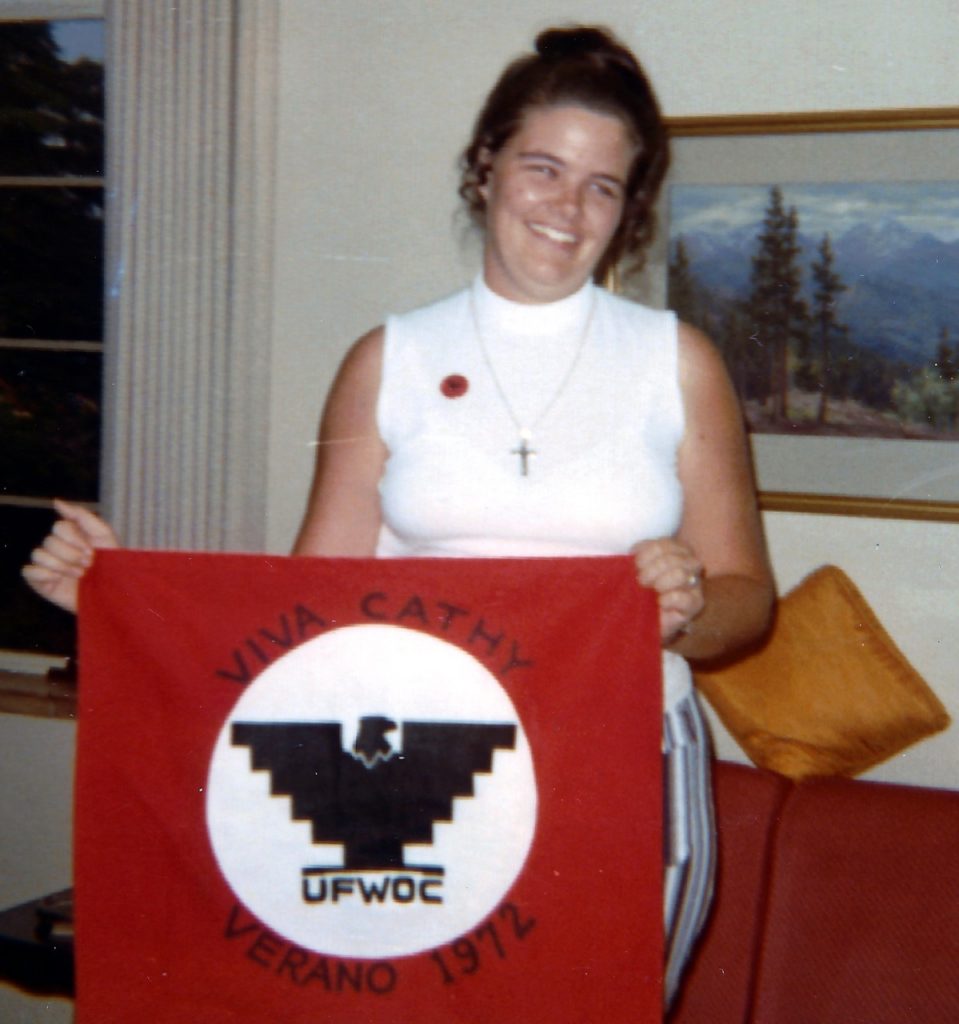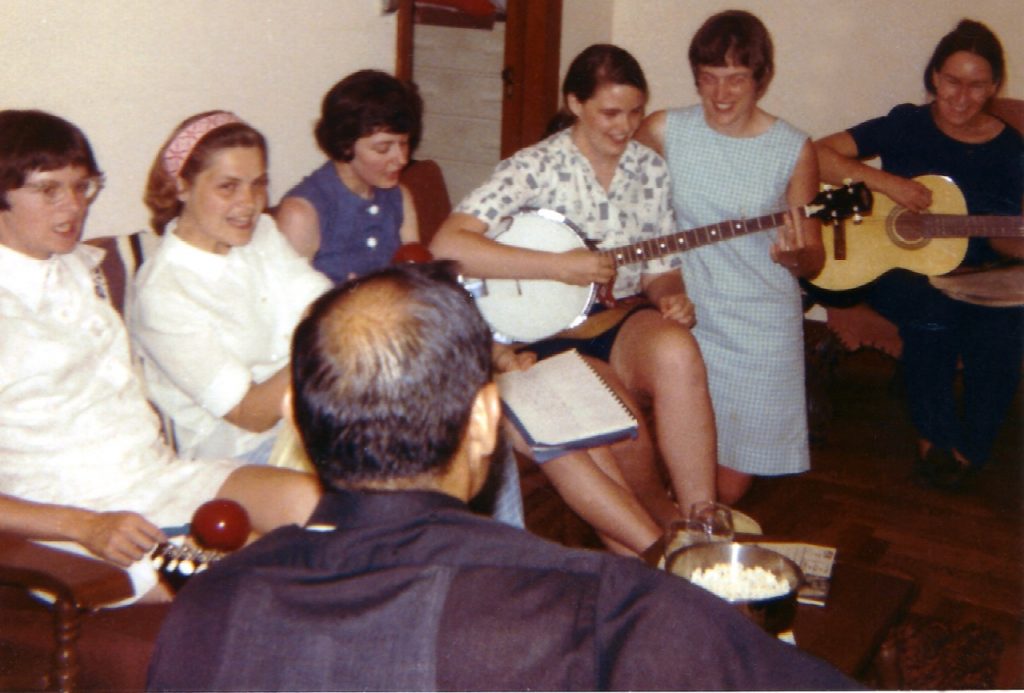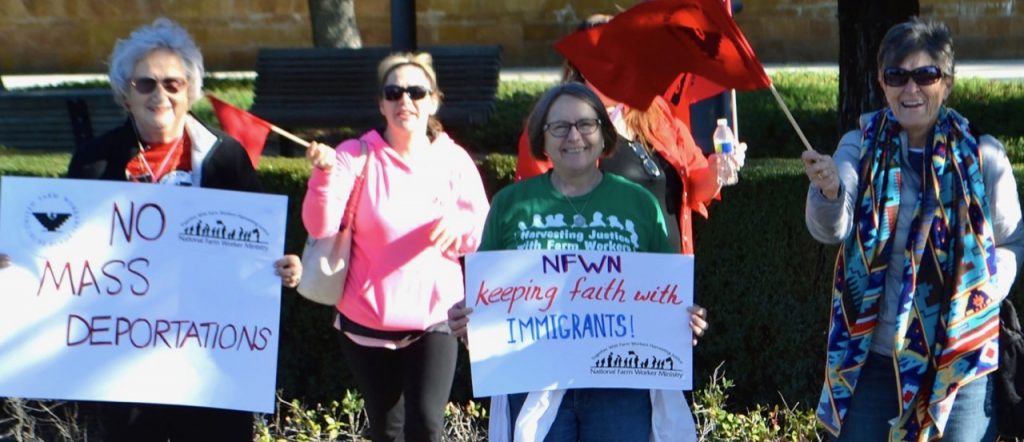¡Si, se puede!* Standing with farmworkers
Posted on October 29, 2020, by Loretto Community
We met migrant farmworker families who lived in terrible situations, shared simple meals with them and held songfests. We learned their needs and responded; this included gathering their young children from the fields to begin day care programs, facilitating reception of sacraments, enrolling their children in migrant schools, taking them for medical care, planning fun nights when all of the migrant families were invited to come together, young and old. We offered friendship and care …
Cathy Mueller SL, former President, Loretto Community

Some highlights from the early years:
• Loretto’s ministry with migrant farmworkers took off in the late 1960s when novices and young professed sisters were sent out across Colorado each summer from the Loretto Center in Denver to help migrants
who worked in the fields. Loretto also provided assistance to farmworkers in Wyoming.
• In the late 1960s, Jean Patrice Golden SL and Mary Jean Friel (Sister of Loretto at the time, now a co-member) went out to live in a migrant camp in
Colorado, providing on-the-ground-support.
• In 1970, Ruth Shy SL (Ruth later left the order) and Mary Jean Friel traveled to California to work with César Chávez. Ruth worked in the fields, and Mary Jean communicated with the press and helped with donations.
• At the height of the lettuce boycott in the early ‘70s, many sisters worked to support the farmworkers in the San Fernando Valley in California (Ruth Shy acted as coordinator at the field office), and in Los Angeles, Florida, Philadelphia and New York City.
• Across the United States, Loretto Community members provided housing and support to those who were traveling in support of boycotts and strikes.

Photos courtesy of Cathy Mueller SL
The work goes on …
Loretto continues its efforts to support migrant farmworkers, who are still underpaid and overworked in hazardous conditions where they are exposed to extreme weather and dangerous pesticides; in many states they still have few protections; most do not have health insurance. Employers have not provided adequate coronavirus protection, including, often, places to wash.
Loretto Community members recently donated money from their stimulus checks to help this vulnerable population during the coronavirus pandemic, a total of $50,000. (The remaining stimulus money went to Loretto’s Hunger Fund and Special Needs committees).

Photo courtesy of Rox Monterastelli CoL
*¡Si, se puede! (Yes we can!): This farmworker-rights slogan, reflecting the movement’s stance in the face of hostile opposition, is attributed to organizer Dolores Huerta, who has spent much of her life tirelessly working for migrant worker rights. Along with César Chávez, she was a vital force behind progress that was made starting in the 1960s through boycotts, strikes, public awareness and legal efforts. Loretto Community members joined these efforts. ¡Si, se puede!
